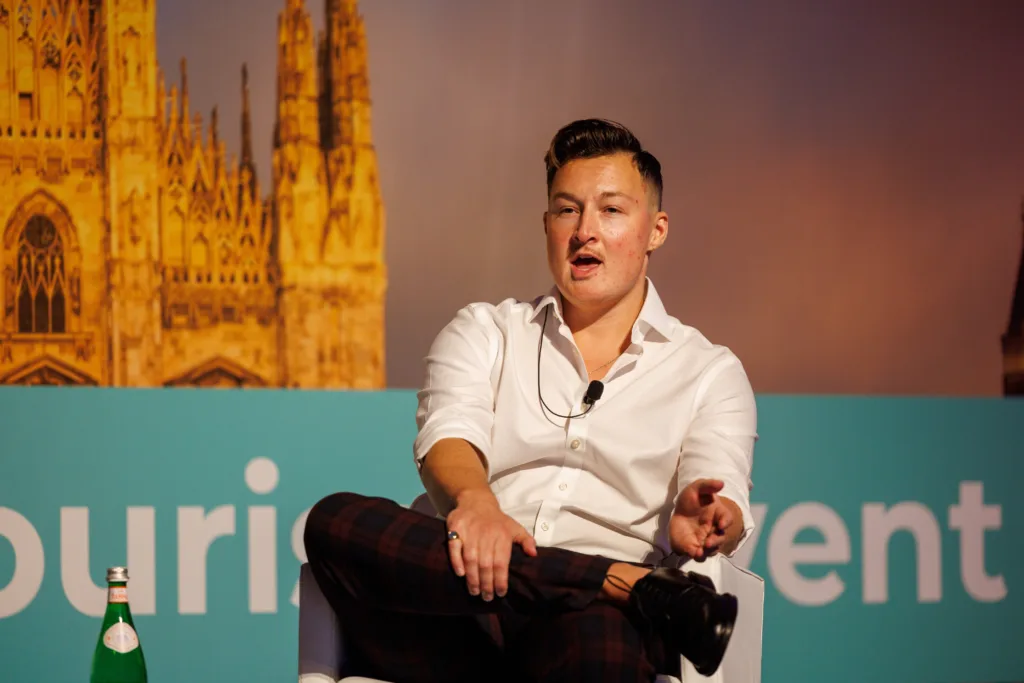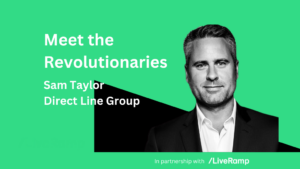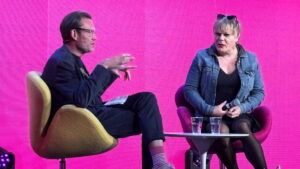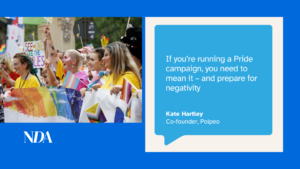Max Siegel, the Director of Trans& and content creator @theyrequeer, defines himself as a “Career Queer”. After spending years in partnerships and marketing, Max began sharing his own story of gender transition on social media and as a speaker, aiming to cut through the misinformation and misunderstandings around Trans and LGBTQ+ people. Today he speaks and consults for organisations all over the world to help them better understand, support and celebrate LGBTQ+ team members and customers.
What is the biggest challenge for members of the LGBTQIA+ community in the digital industry and how is it being overcome?
It’s not just specific to the digital industry that LGBTQ+ employees globally are struggling to have their voices heard and their challenges taken seriously by their employers. However, the digital industry has a tendency to miss these conversations not because of any deliberate malice or lack of interest, but because of an assumption of liberality and cultural acceptance which comes along with being a newer and “younger” industry.
In my experience companies in the digital space often rely on these assumptions as opposed to implementing explicit and intentional DEI policies which support their LGBTQ+ colleagues.
What three things could employer companies do to make the digital industry better for the LGBTQIA+ community?
Building on my last answer, digital companies need to be making explicit commitments to the LGBTQ+ community both internally and externally, which can begin with:
- Education
There is an essential “why” before the “what” when it comes to these conversations. We can all learn what the letters in LGBTQIA+ mean, or how to use they/them pronouns, but without an understanding of why this is important, it falls short of the goal of active inclusion. All successful LGBTQ+ inclusion initiatives start with the admission (at all levels) of what isn’t yet known or understood, and implementing conversations, external speakers and resources which tackle this at all levels.
2. Policy
I use the word explicit again and again in this space because that is what active allyship is. Being intentional, clear and unapologetic in your actions – which means that protection and support for LGBTQ+ team members needs to be included in written policy. Whether that is culture statements, parental leave policies or healthcare, take the time to review and be clear.
You should also know what happens when things go wrong – because they will. No one gets this right all the time, mistakes and misunderstandings happen, make sure your team are well prepared and supported for difficult conversations.
3. ERGs
Raise the voices of your LGBTQ+ employees by creating, supporting and utilising employee resource groups. LGBTQ+ employees are valuable resources when it comes to improving your inclusivity and all the business benefits that come along with that (if we’re going to be really capitalist about this). However, beware of the trap that many companies fall into: Inclusion is not a hobby.
You are not asking LGBTQ+ people to do extra work, for free, to make the company more successful. You are offering them the chance to create real change for their community in a mutually beneficial relationship, meaning that they need to be recognised, compensated and supported in all that they may do in this role.
What impact can a more inclusive approach to LBTQ+ communities in our industry have on society as a whole?
Without quoting the dozens of studies that show the power of DEI and inclusive workspaces, it is (hopefully) not rocket science to most that allowing people to be themselves at work will result in higher employee satisfaction.
Specifically in the digital industry, where we prize creativity and progressivity, nurturing talent from the LGBTQ+ community opens up a whole pool of creative and talented people who may not be able to perform elsewhere if they are constantly in fear for their safety, jobs or freedom.
LGBTQ+ people often thrive in creative industries because of the ability to move beyond traditional boundaries in the same way that many members of the community have had to in order to live openly. In the same vein from a wider societal sense, if we are able to allow LGBTQ+ people the space to be themselves, we welcome the creativity and freedom which comes with challenging the “norm”.
What support structures and organisations are most important and effective to the LGBTQIA+ community in the digital industry?
We’re seeing some great industry-wide organisations coming through to bring the digital space into inclusive territories.
I’d love to shout out my friends at Outvertising who are bringing complete LGBTQ+ inclusion to the marketing and advertising spaces, including offering free resources. Organisations like Lesbians Who Tech are also doing groundbreaking work in raising marginalised voices in the industry.
How effective are trade bodies, industry awards, and the industry press at supporting and promoting LGBTQIA+ inclusivity?
Although there is definitely a long way to go, we’re finally seeing a wider recognition from organisers of all of the above that their lineups, whether that is speakers, nominees or winners, need to be more diverse. As someone who spends a lot of time on LinkedIn looking at lineups, it’s reassuring to see more racially, sexually and gender-diverse folks being championed.
Organisations which bring together thought leaders and industry representatives have a huge responsibility to champion underrepresented voices and to recognise that their spaces create not only positive representation but real change in the industry.
That being said, right now it feels like the beginning of this process. It shouldn’t be a pleasant surprise not to see an all-white or all heterosexual line up. It shouldn’t be cause for celebration when an organisation discusses or champions LGBTQ+ issues outtside of June.
As we have seen from the recent Bud Light debacle, the digital industry has a huge influence and therefore a huge part to play in the advancement of LGBTQ+ rights both internally and externally, I’d love to see more companies grab that with both hands. Max Siegel (he/they) | Director, Trans&










